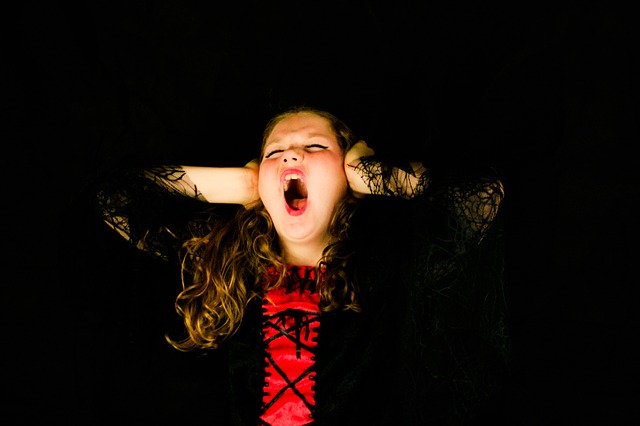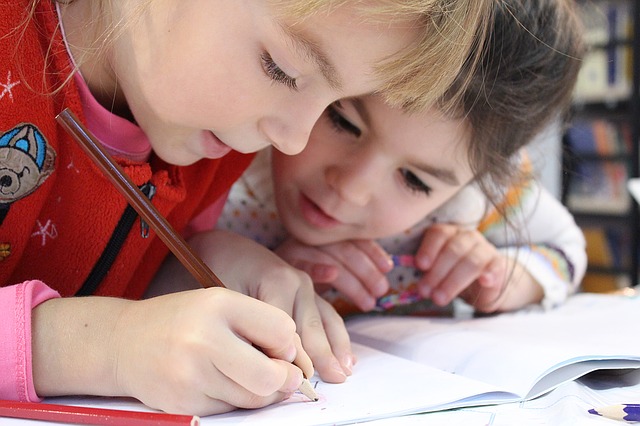
In the hustle and bustle of everyday life, many of us take the sounds of life that surround us for granted. Whether it’s the moody music playing in a store, the hubbub of rush hour traffic, or the buzz of a busy crowd, many of us don’t think very much about the noises that we hear. However, for the 5 to 16 percent of school-aged children who deal with Sensory Processing Disorder (SPD), sound sensitivity can be a very real—and very difficult—thing.
The Link Between SPD and Sound Sensitivity
Although SPD relates to hypersensitivity in more ways than just sounds, there’s no doubt there are a great number of children with SPD who mainly struggle with sound sensitivity. This is especially true with children who have been diagnosed with autism, as many doctors have found a link between Autism Spectrum Disorder and SPD.
So how does SPD relate to sound sensitivity? For most children, when they hear sounds, their sense of hearing gives their brain an accurate report of whether the sound they hear is loud or not. For children with SPD, their sense of hearing gives an inaccurate report, telling their brain that certain sounds are loud or dangerous when they really aren’t. This can cause great confusion and discomfort in a child.
As a parent who wants their children to be safe and happy, it’s important to look for the warning signs that your child is struggling with auditory sensitivity. But what are these signs? We asked several experts, and here’s what they shared with us.
Acting Out
If you notice your child becomes irrationally upset or emotional in certain situations, you may find that there are auditory triggers out of their control that can cause this behavior. Use a logbook to mark these situations, and over time see if you can find a pattern. Sound sensitivity can commonly cause these types of reactions; however, it may not simply be loud sounds, but certain types of sounds that are triggering for your child. Logging these incidents over a long period of time can help learn what’s causing your child so much discomfort.
Lack of Concentration

Sometimes, children with auditory sensitivity are unable to concentrate in certain situations. For instance, most of us can concentrate in a noisy restaurant with dozens of people talking all around us. However, a child with sound sensitivity may not be able to focus with so many different noises surrounding them.
Rising Levels of Anxiety
Have you ever felt pangs of anxiety in a large, noisy crowd (especially while watching your kids)? For children who are neurotypical, they can typically work through these emotions. However, a child who struggles with SPD and sound sensitivity may become irrationally anxious in the exact same situation. If you find that playgrounds, crowded movie theatres, and noisy classroom activities cause anxiety to build in your child, you may be noticing the warning signs of sound sensitivity.
Physical Pain
In certain circumstances, children with auditory sensitivity feel physical pain, even when they hear sounds that are relatively quiet. Although the typical eardrum begins to feel pain around 130 decibels, a child who deals with sound sensitivity can have a much lower threshold. If you notice that your child has to cover their ears with their hands or headphones on a regular basis, you may be seeing the signs of SPD and sound sensitivity.
There’s Hope For Children With Sound Sensitivity
If you feel that your child is showing the warning signs of sound sensitivity, schedule an appointment with your child’s pediatrician as soon as possible. They will likely work in conjunction with a neurologist and an ear, nose, and throat doctor to help provide both a diagnosis and treatment options.
In the meantime, if your child struggles with sensory overload, consider finding ways to calm their other senses when they feel triggered. For instance, a sea lamp can be used to help provide calming stimuli, allowing your child to have a respite from their struggles especially when trying to fall asleep.
As you help your child work through their difficulties processing the sounds that surround them, remember that their atypical behaviors are not because they are trying to be disobedient. Their brain is simply struggling to process the stimuli, and this overload could end up manifesting in many different ways. Like an overloaded dam that bursts, your child is simply trying to cope with a mind that’s sending the wrong signals. By showing them patience and unconditional love, you can both work through it!

